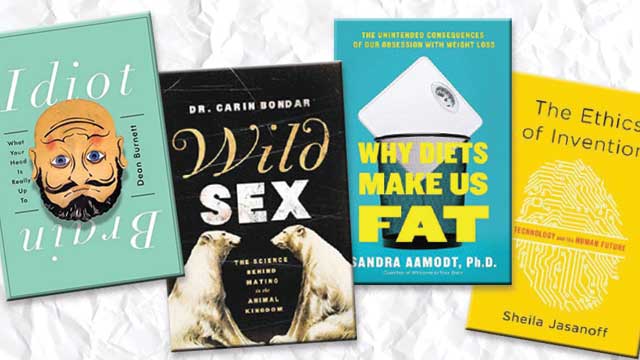
Dean Burnett
W. W. Norton & Company, July 2016
We’ve all had that feeling: you know the one, where it seems as though your own brain is conspiring against you. Cardiff University neuroscientist Dean Burnett certainly has, and he’s devoted his debut book, Idiot Brain, to explaining the biology behind insomnia, blackouts, blank stares, and other instances where our most powerful organ acts pretty powerless.
“Bottom line: the brain is fallible,” he writes in the book’s introduction. “It may be the seat of consciousness and the engine of all human experience, but it’s also incredibly messy and disorganized despite these profound roles.”
But we can learn something from the brain’s occasional hiccups, Burnett explains. Understanding these temporary lapses—such as how we can recognize a face ...




















